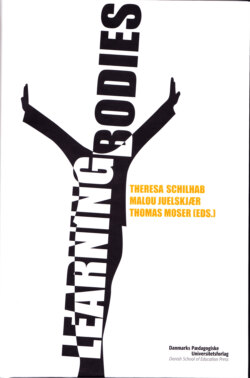Читать книгу Learning Bodies - Группа авторов - Страница 13
На сайте Литреса книга снята с продажи.
Thought experiments Knowledge of execution
ОглавлениеSome kinds of cognition rely heavily on bodily instantiation. This pertains to the ability to balance a bicycle2. Simply reading about how to ride a bike rather than actually doing it does not make one a biking expert. Moreover, any verbal report on bike balancing is likely to be subsequent rationalizing for the simple reason that biking involves body knowledge. In order to count as biking, bodily involvement is needed. This is why we could not have robots bike for us and still name the activity biking (even though robots could be said to bike themselves).
What is body knowledge and to what extent is it responsible for biking? To answer these questions, let us first try to capture what elements biking is composed of to find out if and in what respect the body3 could be dispensed with.
First, the skill of merely balancing activates certain bodily components, the actual position of the joints, the position of hands on the handles, the bodily force with which the pedals are moved to make the bike roll. Neurobiologically, these abilities are stored in cortices responsible for the execution of motor knowledge. Clearly, if these cortices were injured, cycling could not be carried out, because the neural correlates of accomplishing the act would have been wiped out. The body would not know how physically to carry out the action, since such fundamentals as muscle tension and appropriate combinations of muscular activity would be impossible to achieve. There would be no possibility of execution. But is this an adequate description of how we conceive of bodily involvement in biking? Surely, there is more to balancing a bike than just simple motor knowledge (knowledge of execution). Elaborating the analysis of body knowledge seems essential.
